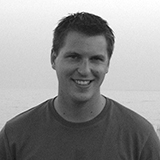 As an intensive care consultant, the risk of “burnout” is ever present. Everyday, I will deliver devastating news to families when they least expect it. I will often make life changing decisions with limited information in a time critical manner. I will have passionate debates with other medical specialties over what is best for patients. However, I do not believe that these are the most important precipitants to my potential future burnout. It is the calm research meeting, with coffee and pastries provided, starting at 10am on Thursday that will be my downfall. That is because Thursday is my day off, yet I will be in work.
As an intensive care consultant, the risk of “burnout” is ever present. Everyday, I will deliver devastating news to families when they least expect it. I will often make life changing decisions with limited information in a time critical manner. I will have passionate debates with other medical specialties over what is best for patients. However, I do not believe that these are the most important precipitants to my potential future burnout. It is the calm research meeting, with coffee and pastries provided, starting at 10am on Thursday that will be my downfall. That is because Thursday is my day off, yet I will be in work.
In the past four weeks I have spoken at three public engagement events, travelled to London twice to speak at medical conferences, attended intensive care planning meetings with government representatives, taught undergraduate and postgraduates on multiple occasions, and discussed links with industry with a local innovation hub.
I have done all of this because I enjoy it and because it is important to me and to others. However, I have done much of it in my “free time” for no cost, even though I have often incurred costs myself financially, physically, and psychologically.
Those involved in research have an additional non-remunerated part of their work life. The design, conduct, analysis, and publication of medical research is a hugely time and life consuming process. The desired outcome, alongside improved patient care, is often a paper published in a respected journal. That same journal that is a corporate entity, profiting from the publication of work and time effectively “donated” by highly skilled professionals. Again, viewed from the outside, this is a very bizarre situation.
To be clear, I do not want additional money to do these tasks. What I would love is time to do these. In few other industries would a highly skilled, highly trained professional with a full time demanding job, be asked to provide such expertise with little or no expectation to be “paid” either in financial terms or with time. Yet in medicine, it is par for the course. While this may in some ways be a good thing, I think that it does contribute to the phenomenon of burnout and is a topic worthy of exposure and further debate.
Matt Morgan is an intensive care consultant, scientist, computer programmer, teacher and geek interested in machine learning, medical education and public engagement. @dr_mattmorgan
Competing interests: I have spoken at a number of education events for which standard travel expenses have been reimbursed. I received a research grant from Heath Research Wales and the Medical Research Council in 2016. I am paid as the lead clinical editor for BMJ’s onExamination.
